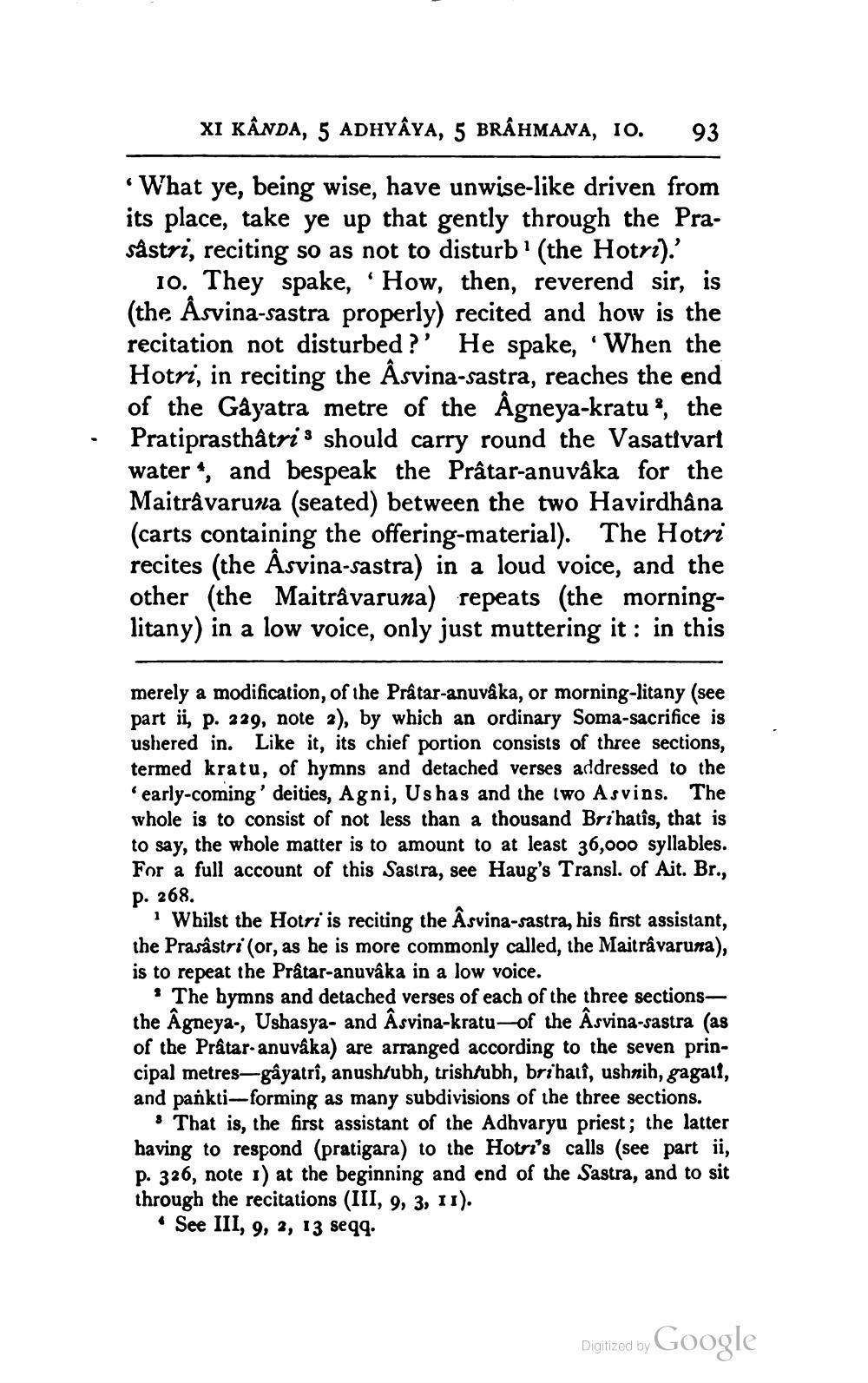________________
XI KÂNDA, 5 ADHYAYA, 5 BRÂHMANA, 10.
93
• What ye, being wise, have unwise-like driven from its place, take ye up that gently through the Prasåstri, reciting so as not to disturb ' (the Hotri).'
10. They spake,How, then, reverend sir, is (the Åsvina-sastra properly) recited and how is the recitation not disturbed ?' He spake, When the Hotri, in reciting the Asvina-sastra, reaches the end of the Gayatra metre of the Agneya-kratu ļ, the Pratiprasthàtris should carry round the Vasatsvart water-, and bespeak the Prâtar-anuvâka for the Maitråvaruna (seated) between the two Havirdhana (carts containing the offering-material). The Hotri recites (the Asvina-sastra) in a loud voice, and the other (the Maitråvaruna) repeats (the morninglitany) in a low voice, only just muttering it : in this
merely a modification of the Prâtar-anuvâka, or morning-litany (see part ii, p. 229, note 2), by which an ordinary Soma-sacrifice is ushered in. Like it, its chief portion consists of three sections termed kratu, of hymns and detached verses addressed to the
early-coming' deities, Agni, Ushas and the two Asvins. The whole is to consist of not less than a thousand Brihatîs, that is to say, the whole matter is to amount to at least 36,000 syllables. For a full account of this Sastra, see Haug's Transl. of Ait. Br., p. 268.
Whilst the Hotri is reciting the Âsvina-sastra, his first assistant, the Prasastri (or, as he is more commonly called, the Maiträvaruna), is to repeat the Prâtar-anuvâka in a low voice.
• The hymns and detached verses of each of the three sectionsthe Âgneya., Ushasya- and Âsvina-kratu—of the Asvina-sastra (as of the Prâtar-anuvâka) are arranged according to the seven principal metres-gayatri, anush/ubh, trishtubh, brihati, ushnih, gagali, and pankti--forming as many subdivisions of the three sections.
• That is, the first assistant of the Adhvaryu priest; the latter having to respond (pratigara) to the Hotri's calls (see part ii, P. 326, note 1) at the beginning and end of the Sastra, and to sit through the recitations (III, 9, 3, 11).
• See III, 9, 2, 13 seqq.
Digitized by Google




